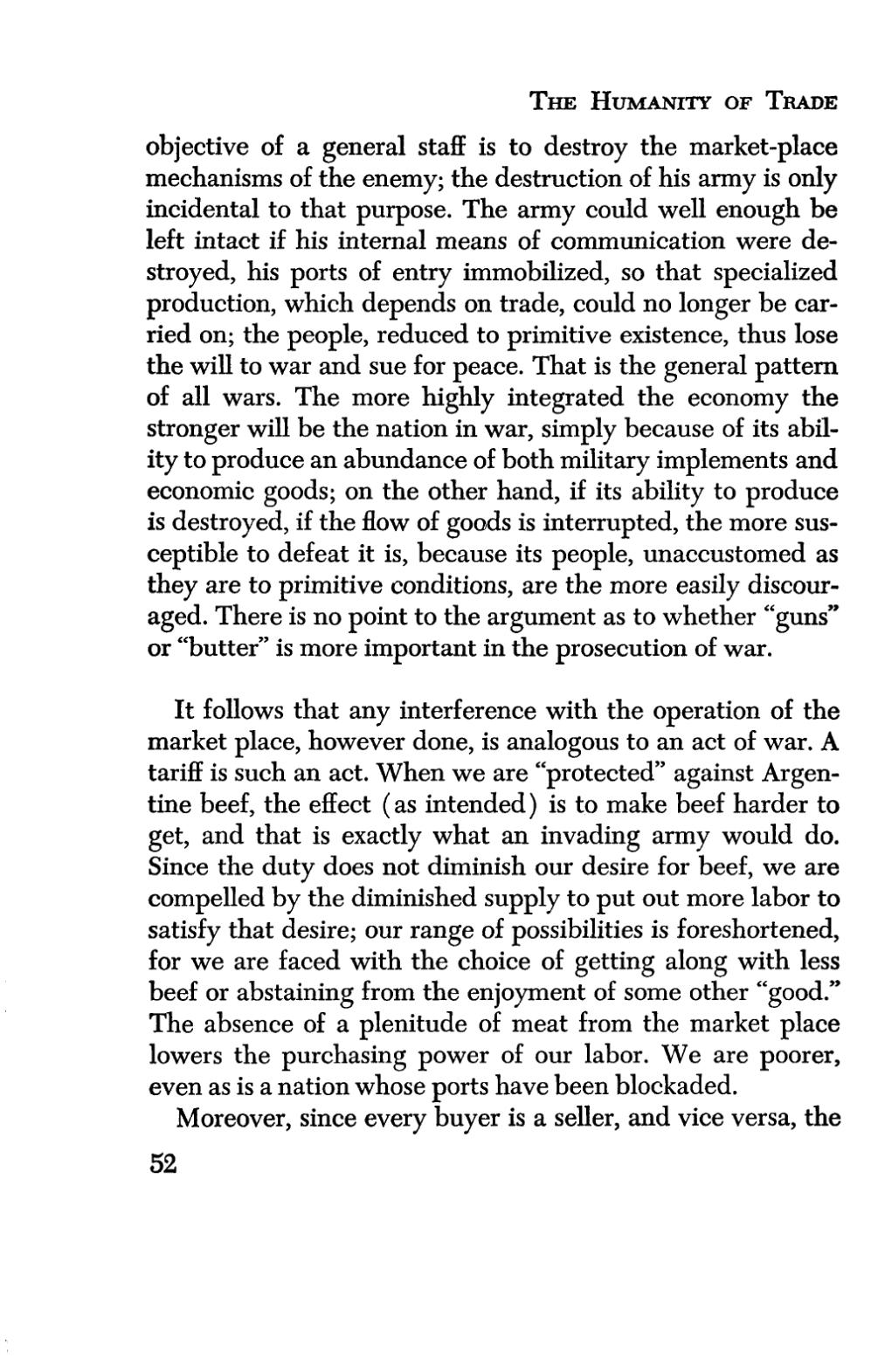objective of a general staff is to destroy the market-place mechanisms of the enemy; the destruction of his army is only incidental to that purpose. The army could well enough be left intact if his internal means of communication were destroyed, his ports of entry immobilized, so that specialized production, which depends on trade, could no longer be carried on; the people, reduced to primitive existence, thus lose the will to war and sue for peace. That is the general pattern of all wars. The more highly integrated the economy the stronger will be the nation in war, simply because of its ability to produce an abundance of both military implements and economic goods; on the other hand, if its ability to produce is destroyed, if the flow of goods is interrupted, the more susceptible to defeat it is, because its people, unaccustomed as they are to primitive conditions, are the more easily discouraged. There is no point to the argument as to whether "guns" or "butter" is more important in the prosecution of war.
It follows that any interference with the operation of the market place, however done, is analogous to an act of war. A tariff is such an act. When we are "protected" against Argentine beef, the effect (as intended) is to make beef harder to get, and that is exactly what an invading army would do. Since the duty does not diminish our desire for beef, we are compelled by the diminished supply to put out more labor to satisfy that desire; our range of possibilities is foreshortened, for we are faced with the choice of getting along with less beef or abstaining from the enjoyment of some other "good." The absence of a plenitude of meat from the market place lowers the purchasing power of our labor. We are poorer, even as is a nation whose ports have been blockaded.
Moreover, since every buyer is a seller, and vice versa, the
